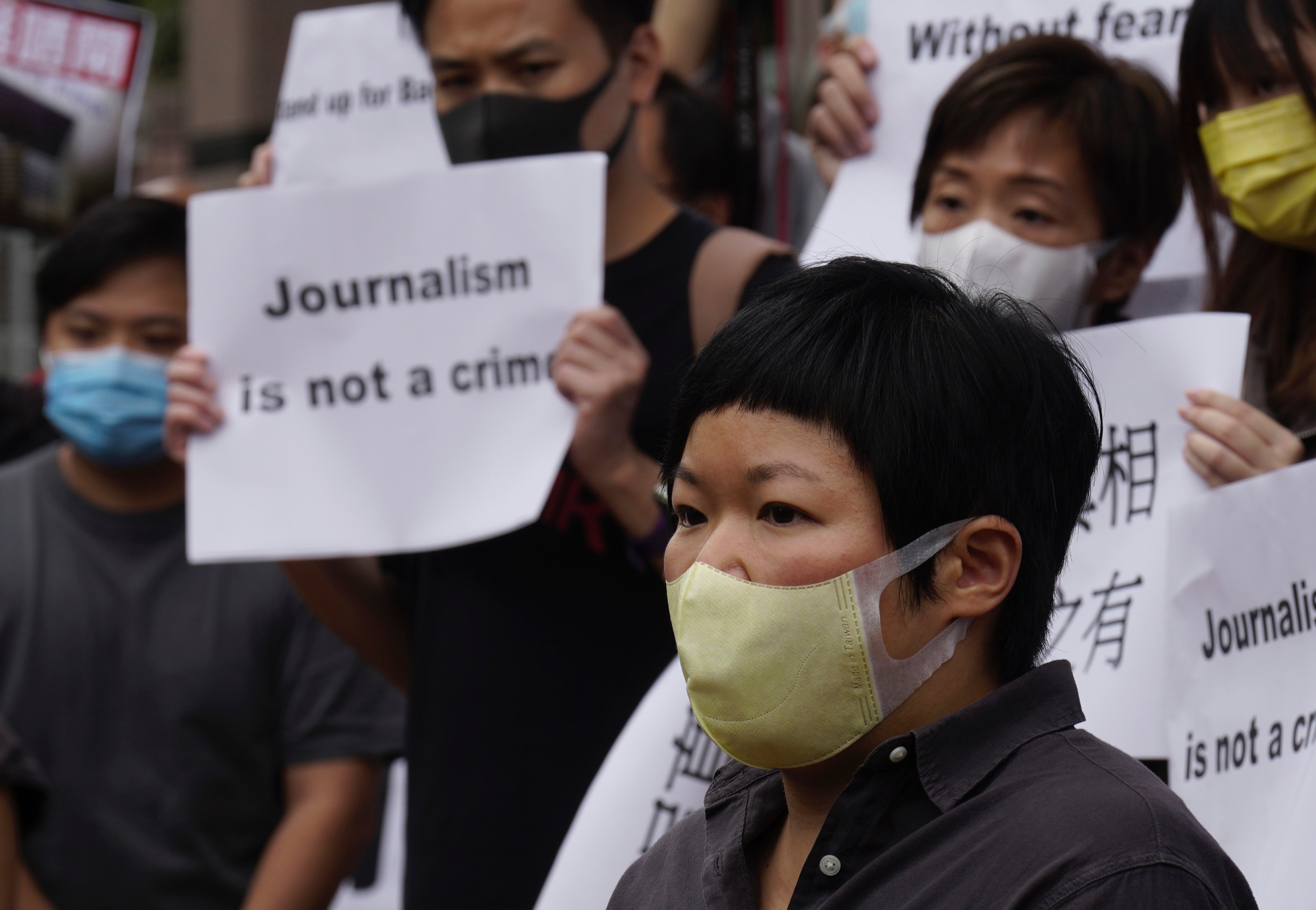Hong Kong journalist charged as press freedom fears grow
A Hong Kong journalist has appeared in court on charges of making false statements while obtaining information from a vehicle database, amid growing concerns that press freedom is at risk in the semi-autonomous Chinese city

Your support helps us to tell the story
From reproductive rights to climate change to Big Tech, The Independent is on the ground when the story is developing. Whether it's investigating the financials of Elon Musk's pro-Trump PAC or producing our latest documentary, 'The A Word', which shines a light on the American women fighting for reproductive rights, we know how important it is to parse out the facts from the messaging.
At such a critical moment in US history, we need reporters on the ground. Your donation allows us to keep sending journalists to speak to both sides of the story.
The Independent is trusted by Americans across the entire political spectrum. And unlike many other quality news outlets, we choose not to lock Americans out of our reporting and analysis with paywalls. We believe quality journalism should be available to everyone, paid for by those who can afford it.
Your support makes all the difference.A Hong Kong journalist appeared in court Tuesday on charges of making false statements while obtaining information from a vehicle database, amid growing concerns that press freedom is at risk in the semi-autonomous Chinese city.
Choy Yuk-ling, a producer at public broadcaster Radio Television Hong Kong, was arrested earlier this month on charges of making false statements about why she was obtaining license plate information from a publicly accessible database.
She was previously involved in the production of an investigative documentary into the behavior of Hong Kong police during last year's anti-government protests, after the force was accused of not intervening during a violent clash between protesters and a mob of men in a subway station.
Ahead of her court appearance, Choy told reporters the case was a matter related to public interest and press freedom in Hong Kong.
“There has been a very strong social understanding … that journalists are free to obtain public information for the sake of public interest,” she said. “I didn’t see any reason that the government has to restrict the flow of information.”
She said that many scholars, unions and lawyers have expressed concerns as to whether the police are using the law to suppress press freedom.
Members from an RTHK union, as well as supporters and pro-democracy activists, held up placards in support of Choy, some of which read “Journalism is not a crime” and “Without fear of favour.”
Choy's case was adjourned until Jan. 14 to give the police more time to investigate, and she was released on bail.
Media groups are concerned Hong Kong's new security law, which outlaws secession, subversion and foreign collusion to interfere in the city's internal matters, could be used against journalist reporting on issues thought to be related to national security.
The U.S. and others have denounced the law imposed by Beijing as an attack on Hong Kong's autonomy and freedoms. The U.S. State Department on Monday announced sanctions against additional Chinese officials over the crackdown.